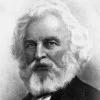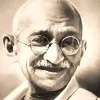Most revolutionaries are potential tories, because they imagine that everything can be put right by altering the shape of society; once that change is effected, as it sometimes is, they see no need for any other.
George Orwell (1903-1950) English writer [pseud. of Eric Arthur Blair]
Essay (1939), “Charles Dickens,” sec. 6, Inside the Whale (1940-03-11)
(Source)
Quotations about:
revolutionary
Note not all quotations have been tagged, so Search may find additional quotes on this topic.
Everyone loves the Revolution. We only disagree on whether it has occurred.
James Richardson (b. 1950) American poet
“Vectors: 56 Aphorisms and Ten-second Essays,” Michigan Quarterly Review, # 8 (Spring 1999)
(Source)
Truths that startled the generation in which they were first announced become in the next age the commonplaces of conversation; as the famous airs of operas which thrilled the first audiences come to be played on hand-organs in the streets.
In art, there are only two types of people: revolutionaries and plagiarists. And in the end, doesn’t the revolutionary’s work become official, once the State takes it over?
Paul Gauguin (1848-1903) French painter [Eugène Henri Paul Gauguin]
Letter in Le Soir (25 Apr 1895)
Collected in Daniel Guérin, ed., The Writings of a Savage (1996) [tr. Levieux].
Often given as "Art is either plagiarism or revolution," or sometimes "Art is either a revolutionist or a plagiarist." This is often cited from James Huneker, The Pathos of Distance (1913), but there it is given as a paraphrase: "Paul Gauguin has said that in art one is either a plagiarist or a revolutionary."
(Huneker's book elsewhere contains the parallel paraphrase, "Paul Gauguin has said that all artists are either revolutionists or reactionists.")
Whenever you look at a piece of work and you think the fellow was crazy, then you want to pay some attention to that. One of you is likely to be, and you had better find out which one it is. It makes an awful lot of difference.
Charles F. Kettering (1876-1958) American inventor, engineer, researcher, businessman
Comment (1930)
(Source)
As attributed by Francis Davis, inventor of power steering.
Rebels and dissidents challenge the complacent belief in a just world, and, as the theory would predict, they are usually denigrated for their efforts. While they are alive, they may be called “cantankerous,” “crazy,” “hysterical,” “uppity,” or “duped.” Dead, some of them become saints and heroes, the sterling characters of history. It’s a matter of proportion. One angry rebel is crazy, three is a conspiracy, fifty is a movement.
But revolutions are made by fanatical men of action with one-track minds, geniuses in their ability to confine themselves to a limited field. They overturn the old order in a few hours or days, the whole upheaval takes a few weeks or at most years, but the fanatical spirit that inspired the upheavals is worshipped for decades thereafter, for centuries.
Boris Pasternak (1890-1960) Russian poet, novelist, and literary translator
Doctor Zhivago [До́ктор Жива́го], Part 2, ch. 14 “Return to Varykino,” sec. 14 (1955) [tr. Hayward & Harari (1958), US ed.]
(Source)
Alternate translations:But revolutions are made by fanatical men of action with one-track minds, men who are narrow-minded to the point of genius. They overturn the old order in a few hours or days; the whole upheaval takes a few weeks or at most years, but for decades thereafter, for centuries, the spirit of narrowness which led to the upheaval is worshipped as holy.
[tr. Hayward & Harari (1958), UK ed., "Again Varykino"]Revolutions are produced by men of action, one-sided fanatics, geniuses of self-limitation. In a few hours or days they overturn the old order. The upheavals last for weeks, for years at the most, and then for decades, for centuries, people bow down to the spirit of limitation that led to the upheavals as to something sacred.
[tr. Pevear & Volokhonsky (2010), "In Varykino Again"]
CAESAR: Let me have men about me that are fat;
Sleek-headed men and such as sleep o’ nights:
Yon Cassius has a lean and hungry look;
He thinks too much; such men are dangerous.
Take the most radical revolutionist and place him upon the all-Russian throne or give him dictatorial power, for which so many of our green revolutionists daydream, and within a year he will have become worse than the Emperor himself.











